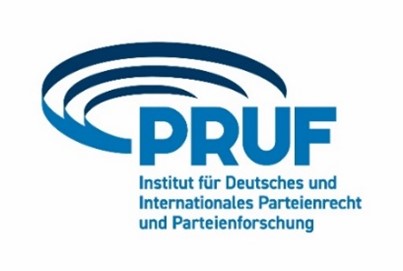Christoph Bieber
Parliaments form a structural fixture in government districts around the world, they are the pivotal place where public affairs are negotiated and formulated. The Russian assault on Ukraine has made it abundantly clear that this place no longer exists in Kiev. At least it is no longer available to the representatives, and the parliament is forced to reinvent itself as a "placeless actor“. It is not very surprising that this reinvention is taking place in the digital space.
Continue reading >>
Irina Khmelko
While we frequently hear about Presidents taking the role of a commander in chief in times of war, the legislature, too, can play an important role. Whether a country succeeds in a war depends not least on how well its legislature is able to adjust to face the challenges of war. This blog post takes a closer look at the Ukrainian Parliament – the Verkhovna Rada (the Rada hereafter) – and its roles and activities during the war of the Russian Federation on Ukraine.
Continue reading >>
Rivka Weill
Not enough attention has been devoted to Russia’s demands that Ukraine amend its constitution to recognize Crimea as Russian territory as well as accept the independence of the separatist regions in eastern Ukraine – Donetsk and Luhansk. Though it may not seem intuitive, constitutional law and its accompanying methods of holding referenda to amend constitutions is at the heart of the conflict between Russia and Ukraine. Is constitutional amendment the way to achieve a breakthrough? What conditions must be met to legitimize secession, which includes the breaking apart of citizens along with the state’s territory, on which they reside?
Continue reading >>
Samuel Issacharoff
Ukraine is engaged in an existential war for survival. One need not accept the full role of the exception from Carl Schmitt to acknowledge that the struggle to withstand a brutal assault on civilians transcends all other issues. Ukrainian constitutional law recognizes the need for exceptional powers during a state of emergency, as does every other constitutional order whether expressly or tacitly. Necessarily, a war for survival shifts authority from parliament to the executive and many of the founding principles of democracy may be suspended during the emergency, even such defining features of democracy as popular selection of the government.
Continue reading >>
Julia Kyrychenko, Sujit Choudhry
To defend Ukraine is to defend constitutional democracy and the rule of law. But the defence of Ukraine must occur through constitutional democracy and the rule of law. The Verkhovna Rada is a central institution in the Ukrainian constitutional order. The Verkhovna Rada’s legislative authority continues to exist during armed conflict and states of emergency. Indeed, the Verkhovna Rada plays a vital role in such situations. However, the routine operations of the Verkhovna Rada in these extraordinary circumstances have been very challenging.
Continue reading >>












